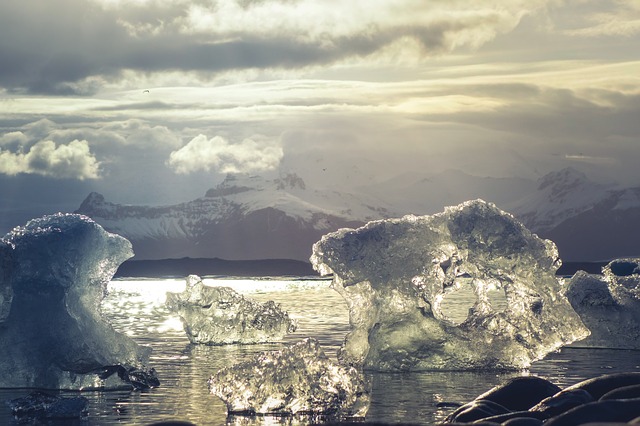UN IPCC set to publish special report on climate change impacts on ocean and cryosphere
- September 25, 2019
- Posted by: administrator
- Category: Environmental, Global, Water Issues, Arctic & Antarctica

The United Nations Intergovernmental Panel on Climate Change (IPCC) is getting ready to publish a special report on the ocean and cryosphere – the frozen parts of the planet – later this morning.
The IPCC Special Report on the Ocean and Cryosphere in a Changing Climate (SROCC), under the joint scientific leadership of Working Group I and Working Group II.
The report assesses the latest scientific literature addressing climate change and the ocean and the cryosphere – water in its solid state such as glaciers and ice sheets.
For this Special Report, the IPPC’s third report this year, more than 100 scientists from more than 30 countries have assessed the latest scientific knowledge about the physical science basis and impacts of climate change on ocean, coastal, polar and mountain ecosystems, and the human communities that depend on them.
Working Group II assesses climate change impacts, adaptation and vulnerability. SROCC is prepared, with operational support from the Working Group II Technical Support Unit.
Key issues the report will address include:
- Role of ocean and cryosphere in the climate system, including characteristics, ocean heat content in Earth’s energy budget, key feedbacks and time scales
- Implications of climate-related ocean and cryosphere change for resources, natural systems (e.g., change and loss of habitat, extinctions), human systems (e.g., psychological, social, political, cultural and economic aspects), and vulnerability assessments, adaptation limits, and residual risks
- Observed and projected changes in mountain cryosphere (glaciers, permafrost, and snow), common drivers of change, and feedbacks to regional and global climate
- Effects of a changing mountain cryosphere on natural hazards and management options for protecting lives, livelihoods, infrastructure, and ecosystems
- Impacts from changes in the mountain environment, including low latitudes (e.g., Himalayas, Andes, Africa) on habitability, community livelihoods and culture
- Risks for societies that depend on mountain cryosphere for water resources (e.g., human consumption, ecosystems and agriculture), including cascading risks, and potential response strategies (e.g., national and international water resource management and technologies)
- Impacts of variability and trends in water supply on hydropower production and implications or energy policy and water governance
- Influence of mountain cryosphere run-off on river and coastal systems and sea level
In the polar regions, the report will look at the growing impacts of climate change on the Greenland and Antarctic ice sheets and ice shelves and Arctic and Antarctic glaciers.
The report will also set out the IPPC’s conclusions on the implications of sea level rise for highly vulnerable coastal zones, coastal cities and infrastructure, deltas and low lying islands. In addition, it will consider current and future sea level rise risks, including changes in coastal flooding, and the resulting biophysical, ecological, economic, political, cultural, social and psychological impacts.
The impacts of climate change on key ecosystem services , including carbon uptake, biodiversity, coastal protection, fisheries, food security and tourism will also be addressed in the wide-ranging report.
Extremes and abrupt changes in ocean circulation and cryosphere and their potential consequences are among other key issues, including cascading risks from storm surge and sea level rise, irreversibility and tipping points.
The Special Report will add to knowledge on a range of topics from water supplies for people living in high-mountain areas to the risks of sea-level rise for coastal communities as well as other climate-related changes in the two systems that all people on Earth depend upon directly or indirectly.
“This report will provide valuable information about how climate change is affecting ocean, coastal, polar and mountain ecosystems,” said Hans-Otto Pörtner, Co-Chair of IPCC Working Group II. “It will also discuss how nature and society can respond to the risks this poses and achieve climate-resilient development.”
The IPCC special reports have transformed public discussions about climate change. The new report will provide important scientific inputs into the Santiago Climate Change Conference (COP25) later this year.
